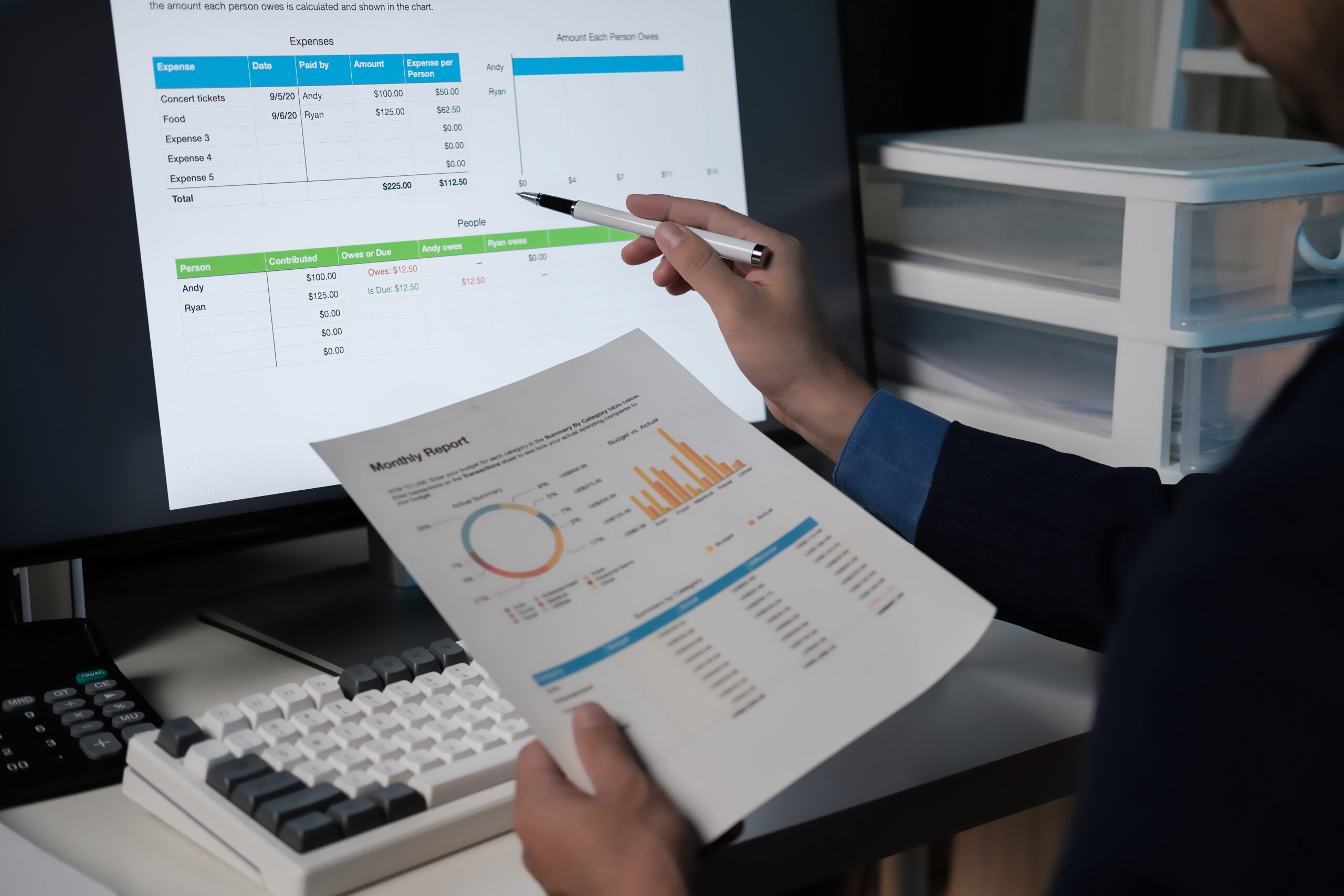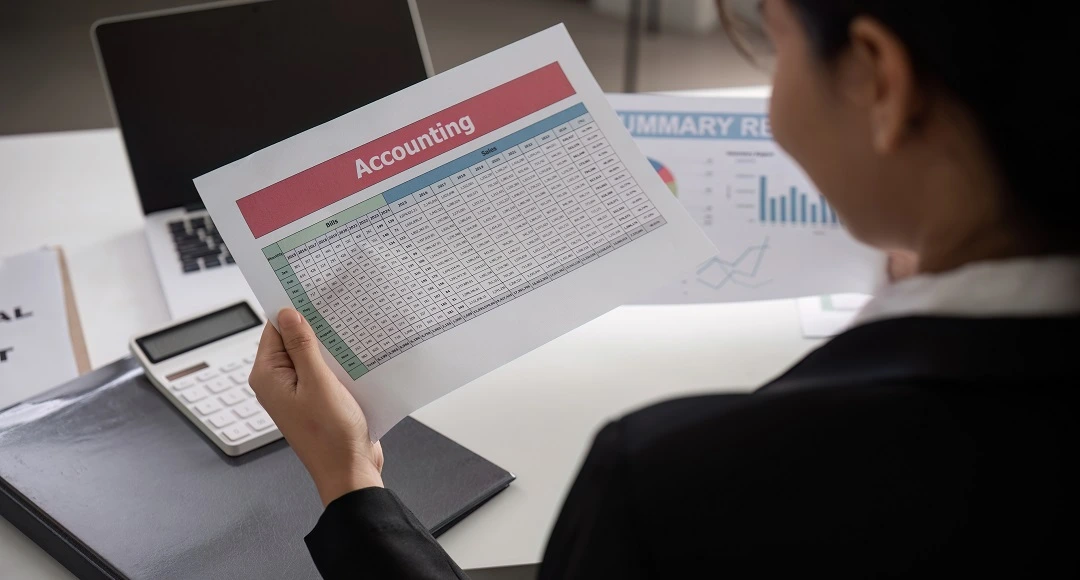From Ledgers to Learning Algorithms How AI is Redefining Accounting
Accounting + Bookkeeping + AI The Trifecta for Smarter Financial Decision-Making
In the age of fast business, staying in control of your finances is not just about number-crunching. It’s about making savvy, strategic decisions that drive growth and that’s where the powerful pair of accounting, bookkeeping and AI in accounting and finance step in.


Accounting has changed a lot over the years, from paper ledgers to bookkeeping on computerized spreadsheets, with ever-increasing technology-based systems. And now, a major game-changer is in the making: artificial intelligence (AI). With the use of automated learning algorithms, AI is changing the work accountants do, how they analyze and relate to data, and how they interact with clients.
While the transition from traditional ledgers to AI-powered tools is undeniably an efficiency gain, it is also a transition in the materiality of accounting. In this article, we focus on how AI is redefining ledgers, AI in accounting, and how learning algorithms will help inform the future of accounting.
The Evolution of Accounting
Accounting has always been the foundation that businesses stand on in relation to the accuracy, compliance (e.g. GAAP, IFRS or statutory) and availability of their financial records. Here’s a brief overview of how accounting has changed since its inception:
- Manual Ledger: Prior to computers accountants were manually transcribing transactions into ledgers – A process that was possible but inefficient and full of errors.
- Computer & Accounting Software: The rise of computers with desktop and online accounting software like QuickBooks and Xero sped up processes and have made entering and overseeing records a lot quicker and easier.
- Cloud Accounting: Accountants can have access to financial information in real time and co-author documents with others.
- AI & Learning Algorithms: In present day, AI is leading the next evolution of the accounting profession and has automating tasks, analyzing data and providing insights that humans are no longer able to achieve.
How AI is Redefining Ledgers
The ledger has historically been the focus of accounting. But now the ledger has shifted from being a static record to a more living, intelligent one by incorporating AI. Here’s how it is changing the ledger:
1. Automated Data Entry
Data entry is one of the most time-consuming elements of accounting. AI will automatically enter your financial activity directly from invoices, receipts, and bank statements.
For example, AI and OCR will extract the necessary information from documents and post it in an accounting system. This will reduce errors, and time spent on these repetitive tasks, so accountants can spend more time adding value.
2. Real-Time Reconciliation
Thanks to AI, reconciliation can take place continually vs at the month-end or quarterly, or annually. AI can ingest bank feeds and cross-reference with invoices or indication of payment to confirm the record is correct and timely. If potential problems surface, AI will flag the risk so adjustments can be made, as opposed to seemingly endless reconciliations at the end of a period.
3. Fraud Detection and Anomaly Identification
Traditional ledgers needed auditors to examine the data to find patterns and irregularities. AI uses its learning algorithm and, with time, it learns to find patterns and anomalies in significant amounts of financial data.
For example, AI can spot:
- Duplicate or unusual transactions;
- Potential fraud based on a pattern of historical actions and behaviors;
- Errors in financial reporting;
- All of these provide improved accuracy, security and compliance.
4. Predictive Insights
With synthetic intelligence, ledgers have transformed into records of the past to predictive tools. AI-enabled systems can forecast cash flow, revenue, and expenses with high accuracy. AI leverages past data to make these future predictions.
Want to learn about the next steps for growing your business ?
The Role of AI in Accounting
AI is revolutionizing the profession of accounting, allowing accountants to get past traditional duties and move further into greater significance. Here are some key factors as to how AI is transforming accounting:
1. Automation of Repetitive Tasks
AI can perform high volume tasks such as:
- Invoicing
- Expense reporting.
- Payroll processing.
With lesser tedious tasks to perform, accountants can participate in strategic actions such as financial planning and advising.
2. Better Financial Analysis
AI allows accountants to analyze large amounts of financial information much more quickly and precisely. Learning algorithms reveal trends, expose insights, and compile complex reports instantaneously.
Better financial analysis enables accountants a much clearer awareness of their client’s financial position, and will allow clients to make more informed decisions based on the much rich data.
3. Enhanced Compliance
AI enhances compliance through:
- Tracking regulatory changes in real-time.
- Updating accounting programs automatically to include new regulations.
- Creating reports for compliance purposes.
This protects an organization against penalties and keeps businesses aligned with changes in regulations.
4. Customized Client Services
AI enables accountants to provide customized services by utilizing client data and tailoring recommendations. Example:
- Tax saving recommendations based on client’s financial history.
- Identifying opportunities for cost savings or investment.
How Learning Algorithms Are Shaping the Future of Accounting
Learning algorithms lie at the center of AI’s ability to transform processes by learning from data and identifying patterns. Here are two ways learning algorithms are impacting the future of accounting:
1. Self-learning systems
An AI system that has a self-learning (ML) component can “learn” from historical data to continue to improve. For example:
- Expense categorization systems become better at categorizing transactions into the correct categories.
- Fraud detection algorithms will become better as they analyze more data.
2. Natural language processing (NLP)
NLP allows AI systems to interpret and communicate with humans in their own language. In the accounting world that means:
- Chatbots can answer client questions about invoices, taxes or financial reports.
- AI tools can derive data from unformatted text like: emails or contracts for financial analysis.
3. Predictive Analytics
Machine learning algorithms can look at historical data and help predict financial trends in the future, such as:
- Estimating cash flow shortages.
- Recognizing seasonal patterns of revenue.
- Forecasting tax liabilities.
4. AI-Driven Audit
Traditional audit work is time-consuming, taking a sample of transactions and looking at the individual items. In contrast, AI performs a search on a data set as a whole, assessing anomalies in real time and monitoring compliance.
The learning algorithms allow an AI-driven audit to:
- Refer to findings, where anomalies may not be apparent in manual audit work.
- Monitor financial transactions in real time and provide some level of assurance continuously.
- Improve cost and timelines to complete an audit while improving accuracy.
The Benefits of AI in Accounting
The benefits of applying AI in accounting are many, such as:
- Time Savings: AI’s ability to automate repetitive tasks saves precious time and resources.
- Increased Accuracy: Data learning algorithms will reduce numerous errors as well as ensure accuracy and consistency in financial records.
- Cost Savings: Most importantly, by saving time; AI will save costs and reduce operational costs because of a streamlined process.
- Scalability: AI is capable of handling massive amounts of data and will scale with a business as it grows and changes.
- Improved Decision-Making: Most importantly, AI can identify insights and reporting to help contribute to better data-driven decisions that lead to a successful business.
Challenges of AI in Accounting
Surely, AI has great benefits; however, certain areas present challenges:
- Implementation Costs: Upfront investments will include both technology and training needed for integrating AI into working.
- Data Privacy Concerns: The AI systems must be compliant with data protection regulations.
- Skill Gaps: Accountants may require new skills to work proficiently with the AI tools.
- Ethical Considerations: Companies need to ensure that AI systems are unbiased and maintain ethical standards.
Final Thoughts
That journey has witnessed the transition of ledgers from their traditional methods to modern AI learning algorithms in the new age of accounting. As redefining the accounting profession by automating tasks, increasing accuracy, and creating predictive insights, AI empowers accountants to concern themselves with matters of greater strategic importance and value.



